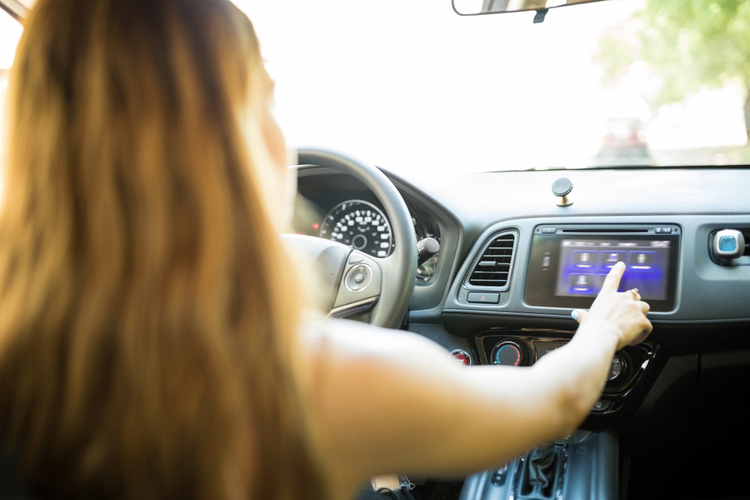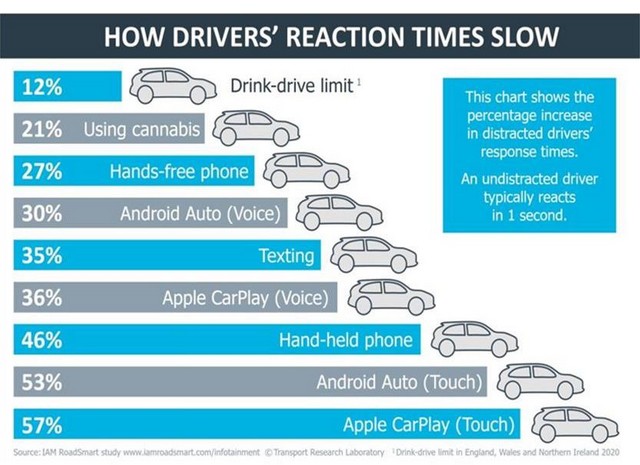
With the development of automobiles, we have come to witness a huge change in the in-car experience. With Google’s Android Auto and Apple’s CarPlay, the user can control the music as well as navigate through unknown roads. However, are these in-car infotainment systems really helping the drivers? This very question led IAM RoadSmart to team up with TRL to find out whether or not these infotainment systems are actually helping the driver or not. And the result was not a good looking one!
The organisations collaborated to find out the distraction rate of a driver while using Android Auto or CarPlay. They invited participants to drive cars in which these infotainment systems were installed and prepared a report based on the observations.
Now, as per the study conducted, researchers found that the reaction times of the driver gets affected much more by these infotainment systems than the use of alcohol or cannabis. The research also found that lane control, response to any stimuli ahead and stopping distances got worse with the use of these systems.
The report also provided a chart (below) showing how the drivers’ reaction times are slowed down by various distraction factors. Now, the standard reaction time for an undistracted driver is more or less 1 second. However, according to this chart, using Android Auto and CarPlay with the voice increase the reaction times to 30% and 36% respectively. This reaction rate is already higher than the rate of reaction time increase with the use of alcohol and cannabis, which are 12% and 27% respectively.

Now, when using Android Auto and CarPlay’s touch interfaces, it was found that the reaction times of the drivers increased by more than 50% in both cases. This means that an average driver took more than 2 whole seconds to react to stimuli on the road.
Taking account of these hazardous findings, IAM RoadSmart is now appealing to the industry and the governments to further evaluate the use of these systems in the cars.
“We’re now calling on industry and government to openly test and approve such systems and develop consistent standards that genuinely help minimise driver distraction.”, said the Policy and Research Director of IAM RoadSmart, Neil Greig.
Greig also warned existing users of these systems to take extra precautions while driving and set everything in these systems before the start of a journey.
“…we’d encourage owners of vehicles fitted with these systems to use them in the safest possible way, including setting everything up before starting a journey.”, added the Director.
Now, I have not used any of these systems in the car and that’s I cannot comment on it personally. However, going by the report, I think the industry should evaluate more on these findings to ensure road safety as extra safety is definitely better than accidents.
from Beebom https://ift.tt/2Ur8ZOk

0 comments:
Post a Comment